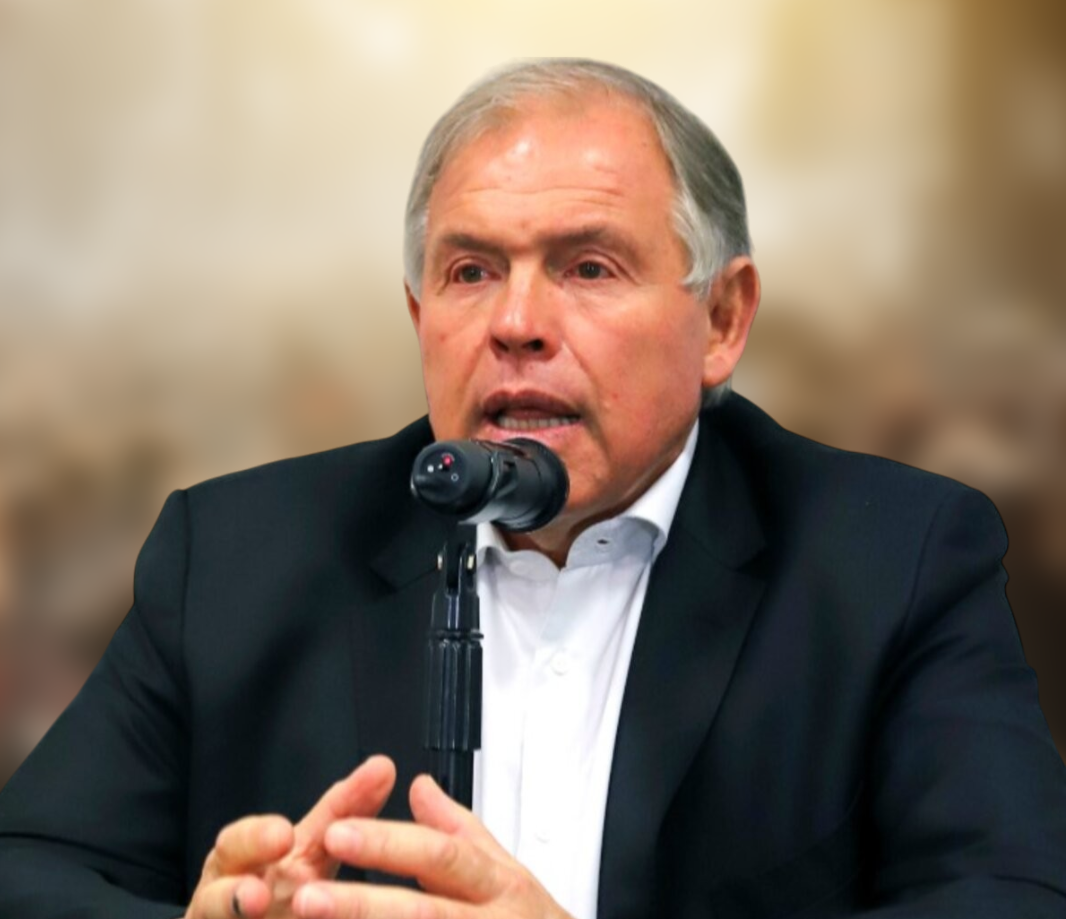Argentina Seeks U.S. Trade Pact as Milei Courts Washington’s Favor
As global trade braces for a new wave of U.S. tariffs, Argentina is proactively seeking a bilateral trade deal with Washington. Foreign Minister Gerardo Werthein's visit to D.C. underscores President Javier Milei’s push to realign Argentina’s economic diplomacy toward the U.S., leveraging shared ideology and high-level connections, including with Donald Trump and Elon Musk.

As global trade braces for another jolt with sweeping new U.S. tariffs on the horizon, Argentina is heading in the opposite direction of resistance. On Tuesday, Argentine Foreign Minister Gerardo Werthein will arrive in Washington for a high-level meeting with U.S. Secretary of State Marco Rubio. The visit is part of an ambitious diplomatic effort to begin laying the groundwork for a bilateral trade agreement between Argentina and the United States — a move that highlights President Javier Milei’s sharp pivot toward Washington and his desire to align ideologically with key players in the U.S. political landscape.
The timing is no coincidence. Just one day later, former President Donald Trump is expected to unveil a set of aggressive tariffs targeting all foreign trade, an event he has dubbed “Liberation Day.” While many nations are scrambling to avoid being caught in the crossfire, Argentina is proactively seeking favor and partnership, viewing the moment as a chance to reset its trade strategy and deepen ties with the U.S., especially under a political leadership it finds ideologically compatible.
President Milei, who took office in 2023, is Argentina’s most radically libertarian leader in modern history. Unlike Trump, who has used tariffs as a weapon for economic leverage, Milei has staked his presidency on tearing down trade barriers, slashing public spending, and shrinking the role of the state. Despite their contrasting economic tools, both leaders share a populist, anti-establishment worldview — and they’ve built a close rapport around it.
Milei was the first international head of state to meet with Trump after his election, and he stood out as one of the few foreign leaders to attend Trump’s inauguration. The mutual admiration has only grown since. Trump has publicly praised Milei, calling him his “favorite president,” while Milei has drawn inspiration from Trump’s disruption of political norms.
Now, the Argentine president is using that political capital to push forward a trade agenda focused squarely on Washington. The foreign ministry has said Werthein’s mission will aim to “strengthen the strategic alliance” between the two nations, beginning with talks not only with Rubio but also with U.S. Trade Representative Jamieson Greer.
Argentina is a major exporter of commodities including grains, lithium, crude oil, and metals. In 2024, the country conducted between $13 billion and $16 billion in bilateral trade with the United States. Its primary exports included crude oil, metals, and chemicals, while its main imports from the U.S. were processed fuels, industrial supplies, capital goods, and auto parts. Despite a long-standing trade relationship, no formal trade agreement exists between the two countries. For Milei, who is seeking new investment and market access, a deal with Washington could be transformative.
Strategically, Argentina’s overtures come as part of a broader recalibration of its global alliances. For years, the country has relied on Brazil and China as dominant trade partners. But shifting political tides, coupled with Milei’s ideological friction with Brazil’s leadership and skepticism about China’s influence, have led Buenos Aires to seek new economic anchors. The United States — especially under a Trump-led or Trump-aligned administration — appears increasingly attractive.
Milei’s overtures aren’t limited to the political sphere. He’s also forged a curious but potent connection with Elon Musk, the tech billionaire and informal adviser in Trump’s orbit. The two have met multiple times, and Milei’s bold, state-slashing agenda — often dubbed “chainsaw economics” — has resonated with Musk, who has similarly pushed for sweeping cuts to U.S. government bureaucracy. In a moment that blended symbolism with spectacle, Milei gifted Musk a real chainsaw during their February meeting, underscoring his commitment to radical reform.
While some critics see these gestures as theatrical, they serve a strategic purpose. By aligning with powerful figures who shape U.S. policy and business, from Trump to Musk, Milei is building a network of ideological and economic allies. The hope is that these relationships will translate into policy wins, investment flows, and formal agreements, including a coveted trade pact.
But Milei’s gamble comes with risks. Trump’s upcoming tariffs are designed to be sweeping and unapologetically reciprocal — hitting allies and rivals alike. Even with warm ties at the top, there’s no guarantee that Argentina will be spared. The very tariffs Milei is trying to navigate may challenge the feasibility of any near-term agreement.
Still, Werthein’s visit signals a clear intent. Argentina is no longer content to be a peripheral player in U.S. trade strategy. Under Milei, it wants to be at the table — as a partner, not a petitioner. With an economy facing inflation, fiscal tightening, and a growing need for foreign investment, Argentina is betting that closer ties with Washington could provide both symbolic validation and tangible relief. Whether that bet pays off will depend not just on ideological affinity, but on how the evolving trade dynamics in Washington unfold in the months ahead.
ALSO READ
India and US Set Stage for Major Bilateral Trade Agreement
Forging Ahead: The India-US Bilateral Trade Agreement Talks
Both India and US are working towards a bilateral trade agreement based on shared priorities: US Vice President JD Vance.
In their talks, PM Modi and US Vice President Vance welcome progress in the India-US Bilateral Trade Agreement.
India-US Bilateral Trade Agreement Set to Double Trade by 2030










